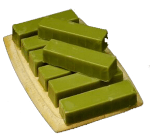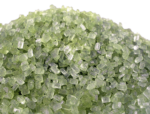Alternatives to FECO and RSO: Cannabutter, Infused Oils and Tinctures for cancer treatment?
INTRODUCTION
When it comes to treating cancer naturally, many people have turned to medical marijuana in search of a cure. There are a plethora of websites out there doling out advice on using cannabis therapy to treat cancer with almost all of them advising the patient to make (or purchase) FECO or RSO. If you do not know much about these two, they are essentially the same product produced in a slightly different manner.
SOLVENTS
Both FECO and RSO require using a solvent to strip the cannabinoids from the cannabis plant. The solvent is boiled off and one is left with a viscous sap containing cannabinoids and other soluble plant material. Unfortunately, if not properly purged your end product can also contain poisonous chemical solvents that are definitely NOT good for you. Other usable solvents exist that are much better for the human body than Naphtha.
ALTERNATIVES
There are other alternatives to FECO and RSO available for treatment that will provide you with the appropriate level of cannabinoids for treatment as well. The main draw towards cannabis concentrates is their relatively high potency by weight. Well prepared Cannabis oil extracts can soar well into the 70% THC range versus the average of 20-25% THC for flower giving the ability to ingest larger amounts of cannabinoids quickly and efficiently. So besides using cannabis oils or smoking raw flower, what other methods are available?
OILS AND TINCTURES
Enter the world of cannabis infused oils and tinctures. Both alcohol and any ingestable fatty oil can also be used to perform the cannabinoid extraction process. Although typically not made as potent by weight as an extract, infused oils and tinctures can be just as effective a weapon in your cancer fighting arsenal. These products are both similar in their preparation; decarboxylated crushed cannabis material is soaked in either oil, butter (to make cannabutter), or alcohol to strip the cannabinoids from the plant. The plant matter is then discarded leaving a cannabinoid rich solution behind.
POTENCY
While potencies of any extract can vary greatly, we will assume that the cannabis extract contains approximately 60% THC for this example. This means that there are 600mg of THC in one gram of oil – the “generically recommended” amount if intake per day. In comparison, 3.5g of decarbed cannabis flower topping out at 20% infused in 1oz of coconut oil will contain approximately 700mg of THC. Conversely, an alcohol tincture can be made using the same 3.5g and 1oz of 190 proof alcohol resulting in the same 700mg final product.
CLEANING IT ALL UP
If you would like to greatly cut down on the green color and hashy taste of your cannabutter, you should consider water curing your dried flower first. Water curing will greatly reduce the cannabis taste and smell typical with most infused butter and oil.
CONCLUSION
As you can see, both final products in this experiment consist of 1oz of solution containing 700mg THC, the equivalent of 1 gram of cannabis extract. It is just as feasible to consume either of these products over the course of a day as opposed to the oil extract and should produce the same results. Don’t let anyone tell you that you must use FECO or RSO – as you can see there are alternatives!
*This post is strictly informational and is NOT intended to be used as Medical advice. Please consult your Doctor before making decisions that can effect your health.



